Which NBA Western Conference teams have done the best and worst this offseason?
Although the futures of Kevin Durant and Donovan Mitchell remain unresolved, the bulk of the NBA’s summer activity has been completed, giving executives a much-needed chance to take a break after conducting three drafts and three free agency periods in the past 21 months.
As a result, it’s time to look back on how well teams took advantage of their opportunity to upgrade their rosters for either the 2022-23 season or the more distant future. (Immediate improvement won’t necessarily get credit if it came at the expense of long-term results.)
These offseason grades are on a curve with “B” as the most common outcome, and they reflect the opportunities teams had to improve their rosters via the draft and cap space to use in free agency. Teams don’t necessarily get credit for having a high draft pick or cap space as the product of past moves. And the draft isn’t weighted as heavily as moves involving NBA veterans because of our uncertainty about prospects.
Keeping that framework in mind, let’s get to the grades in the West, starting with a contender that just lost one of its cornerstones:
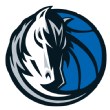 Dallas Mavericks: D
Dallas Mavericks: D
Watching free agent guard Jalen Brunson sign with the New York Knicks was a tough blow to the Mavericks in the wake of their run to the West finals. Having opted not to offer Brunson the largest possible extension last summer ($55.6 million over four years, which Dorian Finney-Smith did sign in February), Dallas saw Brunson basically double that total in a $110 million contract the team was unwilling to beat.
Already deep in the luxury tax, the Mavericks had limited options to replace Brunson and instead chose to invest their taxpayer midlevel exception in center JaVale McGee. Adding McGee gives Dallas a crowd in the frontcourt after dealing for combo big Christian Wood to go with holdovers Maxi Kleber and Dwight Powell. As a result, the Mavericks are counting on Spencer Dinwiddie and Tim Hardaway Jr. to fill the ballhandling and shot creation void left by Brunson’s departure.
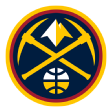 Denver Nuggets: B-
Denver Nuggets: B-
Denver’s combination of offseason moves represented an interesting gamble. By adding Kentavious Caldwell-Pope in exchange for Will Barton and Monte Morris, the Nuggets strengthened their starting five at the expense of their depth. Signing Bruce Brown Jr. with the taxpayer midlevel exception helped replenish the wing rotation, but Denver is relying on second-year guard Bones Hyland to play point guard behind starter Jamal Murray, who is returning after missing the entire 2021-22 season due to an ACL tear.
Additionally, the Nuggets must figure out the rotation behind MVP Nikola Jokic. Newcomer DeAndre Jordan fell out of the rotation with two teams last season, meaning Denver is more likely to rely on smaller lineups with Jeff Green or Zeke Nnaji in the middle. As long as Murray and Michael Porter Jr. are healthy, however, the Nuggets’ starting five looks stout.
 Golden State Warriors: B+
Golden State Warriors: B+
The Warriors’ offseason indicated they do have a budget. Golden State lost two key reserves from last year’s championship team, seeing Gary Payton II head to the Portland Trail Blazers and Otto Porter Jr. go to the Toronto Raptors on deals the Warriors had the means to match. Nemanja Bjelica also departed to return overseas.
Those departures clear the way for 2021 lottery picks Jonathan Kuminga and Moses Moody to play larger roles in their second seasons.
Additionally, Golden State used the taxpayer midlevel exception to add Donte DiVincenzo on a bargain deal as he seeks to rebuild his value following ankle surgery. Per ESPN’s Adrian Wojnarowski, the Warriors will also add JaMychal Green as frontcourt insurance for James Wiseman, returning after missing all of 2021-22.
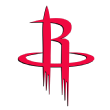 Houston Rockets: B+
Houston Rockets: B+
Entering their second full year of a post-James Harden rebuild, the Rockets continued adding to their young core by making three first-round picks. Naturally, No. 3 pick Jabari Smith Jr. is most important to Houston’s future, supplying shooting and defensive versatility that should fit well with 2021 first-rounders Jalen Green, Alperen Sengun and Josh Christopher.
I particularly liked taking LSU forward Tari Eason with the 17th pick. Eason was in the top 10 of my stats-based projections. Lastly, the Rockets grabbed TyTy Washington Jr. with the final pick of the first round. To make room for the young talent, Houston sent Wood to Dallas for the last of the three first-rounders.
 LA Clippers: B+
LA Clippers: B+
Taking full advantage of owner Steve Ballmer’s checkbook, the Clippers have been able to retain just about all of the depth that enabled them to stay competitive last season without Kawhi Leonard and with Paul George limited to 31 games. The Clippers extended Robert Covington and Ivica Zubac before they hit free agency, then re-signed Nicolas Batum and Amir Coffey at healthy raises.
The Clippers did lose backup center Isaiah Hartenstein, indicating they’ll likely play more small ball this season to take full advantage of their unparalleled wing depth. Instead of looking to replace Hartenstein, the Clippers used their taxpayer midlevel to add John Wall to upgrade at point guard.
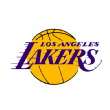 Los Angeles Lakers: B-
Los Angeles Lakers: B-
After disappointing results from their fleet of veteran minimum signings last summer, the Lakers wisely pivoted toward younger options in free agency this time around. None of the players they’ve added to their roster is older than 29. For minimum pickups, I particularly like bringing in Troy Brown Jr. as a player with upside and Juan Toscano-Anderson for his passing and defensive versatility.
On the downside, the Lakers didn’t add a single reliable two-way contributor to fill their biggest need. The Lakers used their taxpayer midlevel to add Lonnie Walker IV, who shot just 31% from 3-point range last season (34% for his career). And even if Walker takes a step forward, as with Malik Monk, the Lakers may be hard-pressed to keep him beyond this season using non-Bird rights.
 Memphis Grizzlies: C+
Memphis Grizzlies: C+
As the Grizzlies’ young talent starts to move toward new contracts, including a max extension quickly signed by point guard Ja Morant, some consolidation of talent was inevitable. Memphis losing forward Kyle Anderson in free agency and trading guard De’Anthony Melton to the Philadelphia 76ers will cut into the depth that made the Grizzlies so tough to beat — even when Morant was injured — last season.
To replace them, Memphis will be counting on 2021 first-round pick Ziaire Williams to step into a larger role, and this year’s first-rounders Jake LaRavia and David Roddy to contribute immediately. On the plus side, the Grizzlies were able to re-sign backup point guard Tyus Jones on a reasonable two-year, $29 million contract that will expire just as Desmond Bane is eligible for a rookie extension.
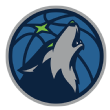 Minnesota Timberwolves: C-
Minnesota Timberwolves: C-
In terms of 2022-23, the Timberwolves should be one of the NBA’s most improved teams after trading for three-time Defensive Player of the Year Rudy Gobert. The question is what the long-term cost will be of sending out four unprotected future first-round picks, a swap, giving up two recent first-round picks (Leandro Bolmaro and Walker Kessler) and two starters (Patrick Beverley and Jarred Vanderbilt).
The enormous return for Gobert reset the trade market, which might make sense for a superstar entering his prime but not a player who’s already well paid ($170 million over the next four years) and recently turned 30. The missing draft picks and added salary will limit Minnesota’s options for building beyond this, including answering the question of whether D’Angelo Russell is the long-term starter at point guard entering the final season of his contract.
 New Orleans Pelicans: B
New Orleans Pelicans: B
With 14 players under contract from the team that rallied to advance from the play-in tournament and tested the Phoenix Suns in the first round, the Pelicans had little work to do adding to the roster this summer. No. 8 pick Dyson Daniels is the team’s only newcomer.
The most important move for New Orleans was a contract extension for 2019 No. 1 overall pick Zion Williamson. The Pelicans gave Zion a max deal, albeit with protections in terms of guaranteed salary — and notably without a player option for the final year.
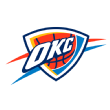 Oklahoma City Thunder: B
Oklahoma City Thunder: B
As usual, the bulk of the Thunder’s additions came through the draft, where the team made three of the first 12 picks after parlaying three future first-rounders into the No. 11 selection (Ousmane Dieng) from the Knicks. No. 2 overall pick Chet Holmgren joins Josh Giddey and Shai Gilgeous-Alexander in Oklahoma City’s core.
We probably also have to put Lu Dort in that category after the Thunder declined his team option in order to re-sign him to a five-year, $87.5 million deal, betting on his development and a rising cap.
Before Gilgeous-Alexander’s extension kicked in, Oklahoma City leveraged leftover cap space to take on JaMychal Green from Denver and add a future first-rounder in exchange for this year’s 30th pick, later buying out Green. And the Thunder also extended Kenrich Williams for four years and $27 million, another deal that could age well as the cap rises.
 Phoenix Suns: C+
Phoenix Suns: C+
Even after the negotiations ended with the Suns matching an offer sheet from the Indiana Pacers, it’s tough to tell the team’s goal in talks with restricted free agent Deandre Ayton. If Phoenix hoped to force Ayton to choose between playing for the one-year qualifying offer or a non-max multiyear deal, that outcome did look realistic for a moment before the Pacers stepped in. The Suns were fortunate Ayton’s deal wasn’t more player-friendly, containing no player option or trade bonus. Still, the way Phoenix handled Ayton’s free agency could have long-term ramifications.
With Ayton’s new deal taking them into the luxury tax, the Suns’ other moves were all to add players at the minimum. I liked the value for Damion Lee, who has quietly been productive for the Warriors during the regular season.
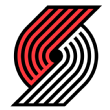 Portland Trail Blazers: B-
Portland Trail Blazers: B-
When the Blazers never appeared to seriously consider a Damian Lillard trade during a season in the lottery, it signaled their intent to revamp the roster around him this summer. That process was highlighted by sending a future first-rounder from the CJ McCollum trade for Jerami Grant, who is younger and a better fit alongside Lillard.
Anfernee Simons, newly re-signed to a four-year, $100 million deal, steps into McCollum’s old role next to Lillard in the backcourt. Portland also retained starting center Jusuf Nurkic on a four-year, $70 million deal that felt generous given the market for centers and limited teams with cap space. After adding Payton to offer more defense off the bench and taking a swing on Shaedon Sharpe with the seventh pick, the offseason culminated with a two-year extension for Lillard that could be worth up to $122 million depending on the growth in the salary cap.
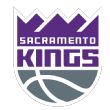 Sacramento Kings: B
Sacramento Kings: B
After he won MVP honors at summer league in Las Vegas, the Kings have to be feeling good about taking Iowa forward Keegan Murray with the No. 4 overall pick. I agreed Murray was the best prospect available at that spot, though it’s far too early to take a victory lap on the decision to draft him ahead of promising Jaden Ivey.
The rest of Sacramento’s offseason focused primarily on the backcourt, where the Kings signed Malik Monk as a free agent and dealt for Kevin Huerter from the Atlanta Hawks. Huerter and Monk supply needed shooting next to point guards De’Aaron Fox and Davion Mitchell and are just beginning their prime years, but the Kings let DiVincenzo walk in free agency when he might prove a better value than either newcomer.
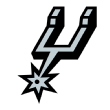 San Antonio Spurs: B+
San Antonio Spurs: B+
After attempting to add young talent while competing for a playoff spot, the Spurs fully embraced a rebuild this offseason, sending Dejounte Murray to the Hawks in a deal that yielded three first-round picks. That move brought San Antonio to $30-plus million in unused cap space, giving the Spurs the ability to take on more salary (say, perhaps Russell Westbrook?) to add even more picks.
For now, San Antonio will boast one of the league’s younger rosters with three first-round rookies (Malaki Branham, Jeremy Sochan and Blake Wesley) as they play for lottery positioning in 2023. The Spurs have committed to Keldon Johnson as part of their future, signing him to a four-year rookie extension.
 Utah Jazz: A
Utah Jazz: A
The end of Utah’s run of contention, which has featured the longest consecutive streak of playoff appearances (six) in the West, is obviously disappointing. But the Jazz would have been hard-pressed to improve the roster with multiple first-round picks committed in past trades, little young talent and a salary sheet in the luxury tax. Moving Gobert for massive value positions Utah to start a rebuild at a pick surplus rather than a deficit.
There’s still plenty of work for the Jazz. If they don’t move Mitchell before the season, they’ll need to reshape a transitory roster to fill needs at small forward and center and address a surplus of contributors in the backcourt. A Mitchell trade would push Utah into the race for ping-pong balls, and with even more future picks in tow.
Credit: Source link